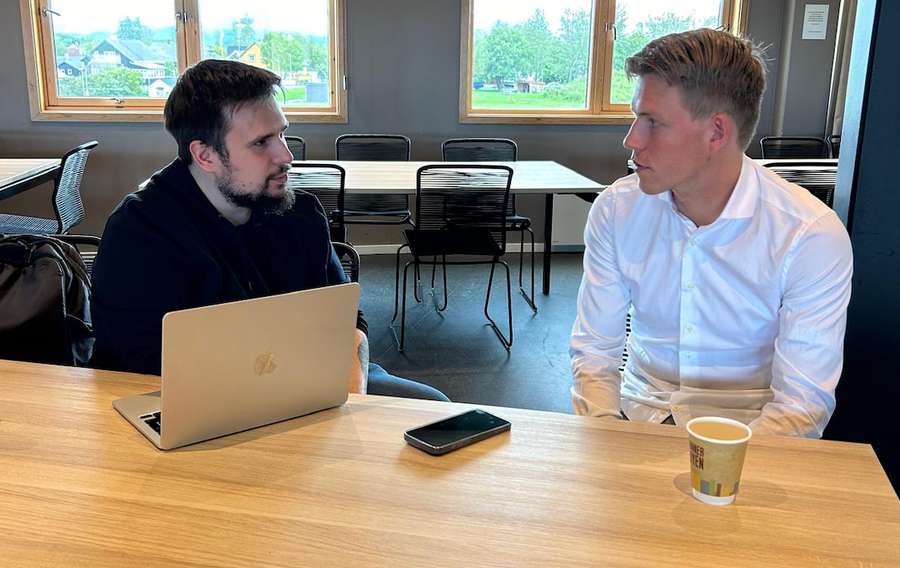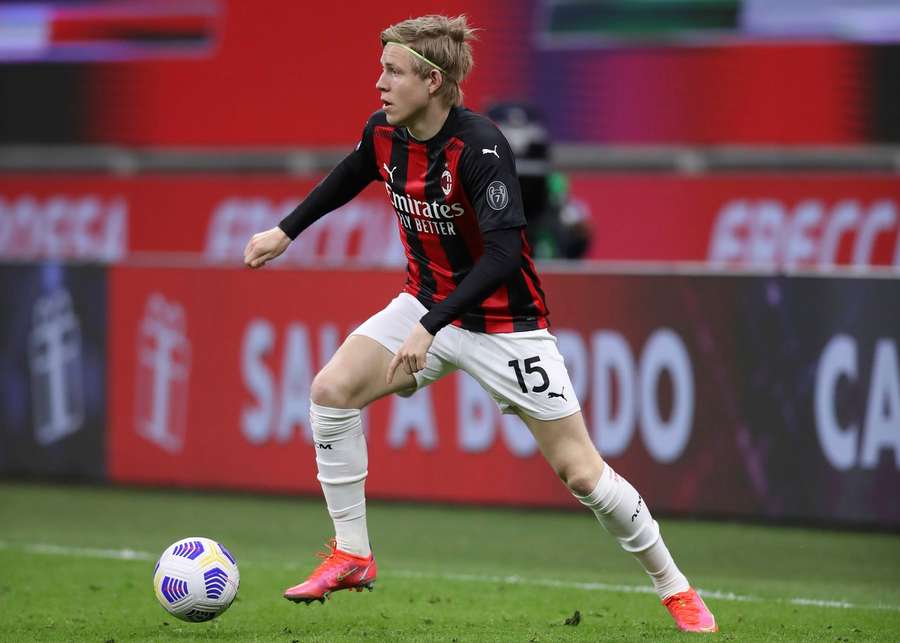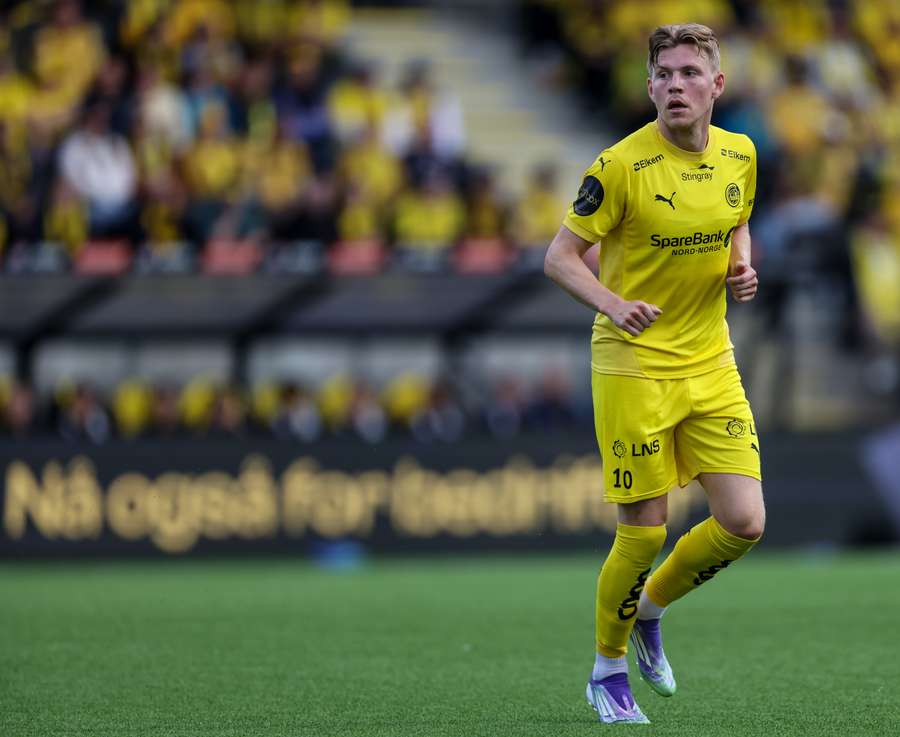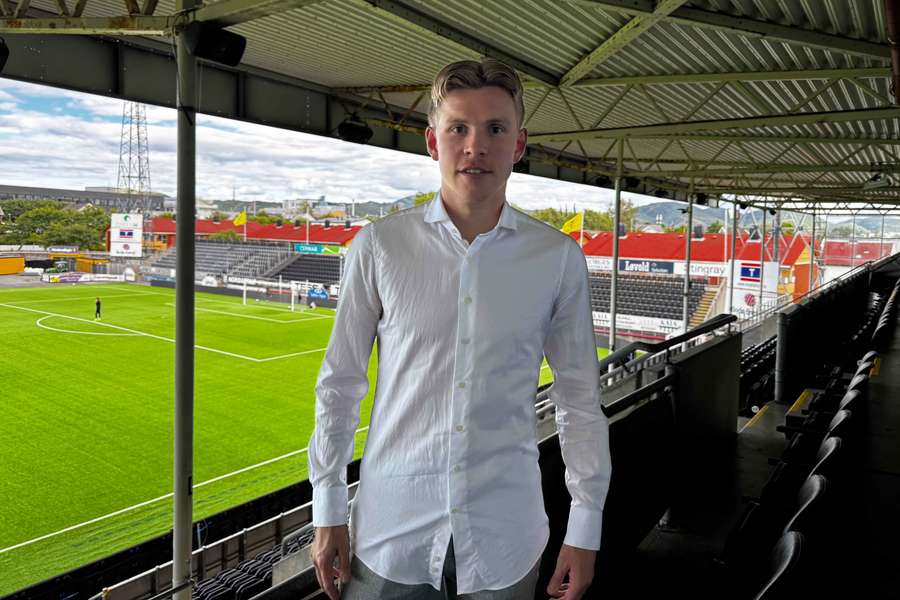But home called him back. He returned to Bodo/Glimt, a team above the Arctic Circle that puts hard work, collective growth and performance above results.
Now 25, Hauge is more than just one of the club’s most talented players. He’s a standard-bearer for the very mindset that turned Bodo/Glimt from underdogs into four-time Norwegian champions that haunt European giants.
In an exclusive interview with Flashscore, Jens Petter Hauge tells us more about the uniqueness of Bodo/Glimt, recalls how the club brought the town together and how it followed him even to his adventures abroad.
You made your first team debut for Bodo/Glimt at age 16, coming on as a substitute and immediately scoring a hattrick. What does a teenage player feel after such an incredible debut for their boyhood club?
“I was just super excited to be in the squad and travel with the team. I didn't train for very long with the first team and then they told me I'm coming for the game. I was buzzing for that, already really proud, and then I bang in the goals. I don’t think I really understood at the time how big it actually was for me. But it for sure made me believe in myself a lot more.”
Bodo/Glimt have won four out of the last five titles, but you’ve been a first-team regular here since the club's second division days. Can you describe how far the club has come since then?
“We’ve been through a lot of changes, we adjusted our way of thinking. We used to have meetings ahead of each season where we set our targets - how many points we would be happy with, how many goals we want to score… But we figured out it’s the wrong focus. We started working on our performance, focusing more on that than the results. It changed a lot how we train and how we evaluate ourselves. We also had a lot of young local players who came up at the same time and were really motivated to work hard.”

One word we’ve heard a lot when exploring Bodo is that Bodo/Glimt is a unique club - both in its setting above the Arctic Circle, and in its way of thinking and operating. What do you think sets it apart from the European clubs that come here to play the UEFA competitions against you?
“I think most of the clubs we meet only care about the results. If they play badly but end up winning 1-0, they go home happy. Of course I agree with them on the basics, you need to sacrifice a lot and do everything you can to win. But our focus is a little bit different. For me, it’s better and more correct if you’re looking at the long term. Because you might be lucky once or twice, but you can’t be lucky for 30 games of the season. If you focus on how you perform, that will pay off.”
The head coach, Kjetil Knudsen, is a big part of your success. He’s been here since 2018, first guiding the club to safety in a relegation battle, then to four titles. How would you describe him as a coach and a person?
“He is pretty similar to a lot of the coaches I’ve worked with in Europe, but there are some differences. He’s very demanding; he wants everyone to invest their whole life in football. But he’s also a very good person; he knows he can’t expect performances on the pitch from a person who’s not doing well off the pitch. Kjetil knows we need to have a good locker room full of friends who enjoy playing together, and spending all this time on the road together.”
When we walked through Bodo, you see Bodo/Glimt colours and flags everywhere. You think that the club has tied the city together, especially with the recent success?
“Yes, there has definitely been a big change in the fan culture here. When I started playing, only a few people cared about the club and barely went to the games. I think something changed during COVID. People couldn’t do much, had to stay at home, but they started watching us play on TV. They saw us win the league and play AC Milan in Europe… It gave people something to cheer for during a difficult period.”

After AC Milan bought you from Bodo/Glimt, you scored your first Serie A goal at Napoli’s Diego Maradona Stadium. Can you describe that feeling, going from playing for your boyhood club to doing this within a few months?
“It was an incredible feeling. I remember I scored my first for Milan a couple of weeks before in the Europa League, but this was the first one in Serie A, and it was really special. Also, because on the very same day, Bodo/Glimt won the league title! It was a really special day for me.”
When you won the Europa League with Frankfurt, Oliver Glasner was your coach there. Are you following his success with Crystal Palace now?
“We had a good bond, he’s a fantastic person. We keep in touch, and we also met during a friendly last year. He is an unbelievable coach, doing great things with Palace. Learning from him was a great experience.”
You came back to Bodo after four years abroad. How did the experience in Serie A and Bundesliga help shape you?
“I’ve been through a lot, worked and trained with some of the best players in the game. I’m so grateful for that experience, for learning how the best in the world work, and I try to transfer it back here and work with that experience every day. I want to help the team and the young players to grow.”

What are the goals you have now, with Bodo and for yourself?
“Personally, I want to keep developing as a player. I feel very good at the moment, and at 25, I hope I still have a lot of years in front of me. When the time is right, I want to go abroad again and play in one of the best leagues. For the team, it’s pretty obvious that we want to test ourselves against the best teams in the Champions League.”
Sturm Graz are the only thing that stands between Bodo/Glimt and the Champions League. What do you think about that fixture?
“I think they're at a similar level to us, and it will be exciting to see if we can play at our best and compete against them. It's a really exciting fixture. They suit us well, but they have a lot of qualities, so we need to be at our very best level. But I don't think we've ever been more ready than we are now. We went through tough matches last season in Europe with Tottenham, Lazio and Olympiacos. We learned a lot from those matches and we will be ready.”
Outside of club football, you’re also a regular part of the national team that leads the qualifying group. Is going to the World Cup with Norway one of your goals?
“It absolutely is. The Norwegian people deserve to see their national team at the World Cup. We had a good start, and with the group of players we have now, I think it’s possible. But it’s still a long way there. I think the expectations of the national team have increased since players like Erling Haaland and Martin Odegaard became global superstars. People expect us to do well. But it also inspired the young players who see that it’s possible to be one of the best players in the world, even if you’re from a small country like Norway.”

